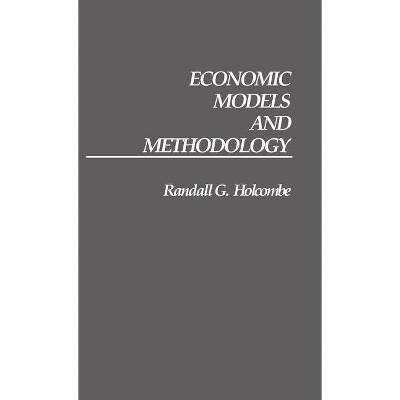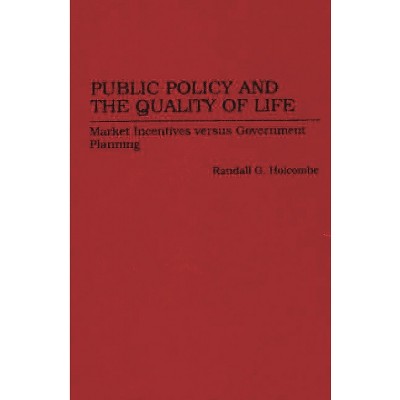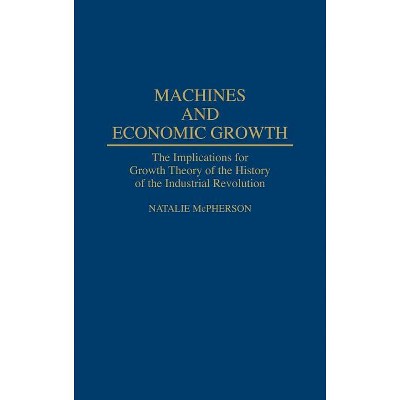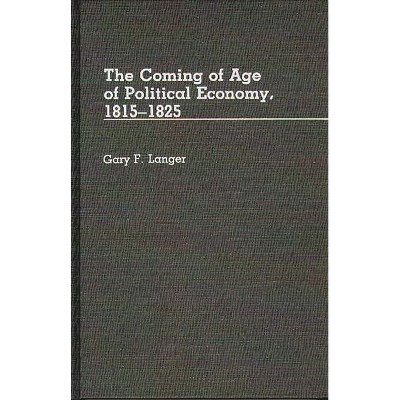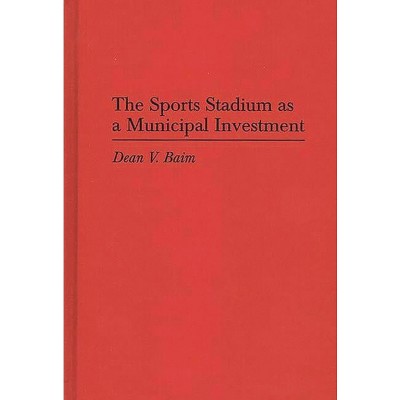Sponsored

Growth and Variability in State Tax Revenue - (Contributions in Economics and Economic History) by Randall G Holcombe & Russell S Sobel (Hardcover)
In Stock
Sponsored
About this item
Highlights
- During recessions state government fiscal crises are widespread, as states find their revenues inadequate to meet their expenditure demands.
- About the Author: RANDALL G. HOLCOMBE is DeVoe Moore Professor of Economics at Florida State University.
- 224 Pages
- Business + Money Management, Economic History
- Series Name: Contributions in Economics and Economic History
Description
About the Book
During recessions state government fiscal crises are widespread, as states find their revenues inadequate to meet their expenditure demands. This volume shows that state fiscal crises have only one significant cause: revenue downturns associated with recessions. Other analysts have argued that fiscal crises are the result of an interaction of many complex causes, including inadequate tax bases, increasing expenditure demands, and limits placed on state governments by voters. This analysis examines these other factors and shows that while they present significant challenges to state policymakers, they are not the cause of fiscal crises.
The book presents an improved methodology for measuring cyclical variability of revenues and uses this methodology to show that there is no way to restructure state tax systems in order to appreciably reduce the fiscal stress associated with recessions. Fiscal stress can be lessened by setting aside revenues during prosperous years in a rainy day fund, but current rainy day funds are not large enough to eliminate the fiscal stress caused by recessions.
Book Synopsis
During recessions state government fiscal crises are widespread, as states find their revenues inadequate to meet their expenditure demands. This volume shows that state fiscal crises have only one significant cause: revenue downturns associated with recessions. Other analysts have argued that fiscal crises are the result of an interaction of many complex causes, including inadequate tax bases, increasing expenditure demands, and limits placed on state governments by voters. This analysis examines these other factors and shows that while they present significant challenges to state policymakers, they are not the cause of fiscal crises.
The book presents an improved methodology for measuring cyclical variability of revenues and uses this methodology to show that there is no way to restructure state tax systems in order to appreciably reduce the fiscal stress associated with recessions. Fiscal stress can be lessened by setting aside revenues during prosperous years in a rainy day fund, but current rainy day funds are not large enough to eliminate the fiscal stress caused by recessions.Review Quotes
?This excellent book fills an important empirical gap in the literature of state fiscal crises, revenue elasticities, and rainy-day funds....The findings of this book are very important for state policy makers who must worry about how to deal with the next economic downturn. Professors Holcombe and Sobel have produced a book excellent for the libraries of practitioners and academics alike.?-Government Finance Review
"This excellent book fills an important empirical gap in the literature of state fiscal crises, revenue elasticities, and rainy-day funds....The findings of this book are very important for state policy makers who must worry about how to deal with the next economic downturn. Professors Holcombe and Sobel have produced a book excellent for the libraries of practitioners and academics alike."-Government Finance Review
About the Author
RANDALL G. HOLCOMBE is DeVoe Moore Professor of Economics at Florida State University. He is also chairman of the Research Advisory Council at the James Madison Institute for Public Policy Studies, a Tallahassee-based think-tank that specializes in issues facing state governments. He is author of seven books, including Public Policy and Quality of Life (Greenwood, 1995). His primary research areas are public finance and the economic analysis of public policy issues.
RUSSELL S. SOBEL is Assistant Professor of Economics at West Virginia University and a faculty research associate with the Bureau of Business and Economic Research at West Virginia University. He is author of several articles.





